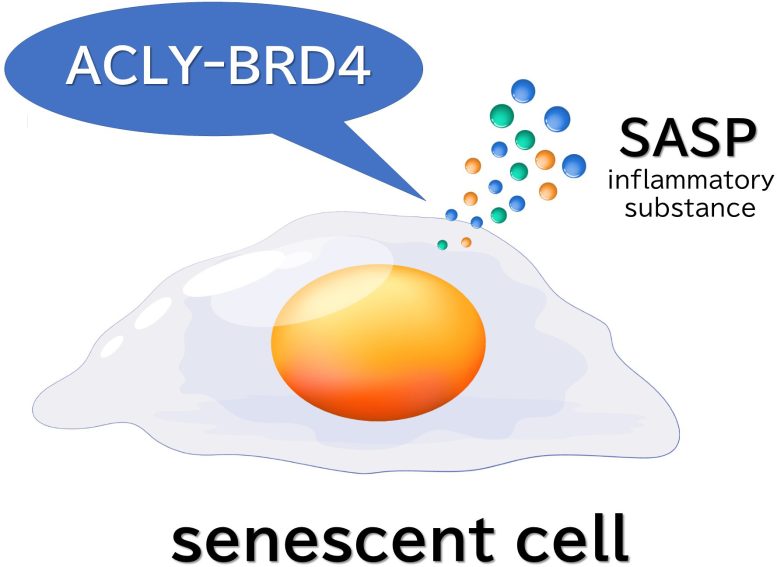

Kumamoto University researchers identified ATP-citrate lyase (ACLY) as a key enzyme in driving chronic inflammation in aging cells. Blocking ACLY reduces inflammation-related genes and offers a new strategy for treating aging-related diseases and promoting healthy aging.
A research team at Kumamoto University has made a significant breakthrough in the study of aging and inflammation. With Japan’s population aging at an unprecedented pace, the focus has shifted to extending healthy lifespans, not just overall lifespans.
The research focuses on “cellular senescence,” a process where cells stop dividing and enter a state associated with chronic inflammation and aging. This cellular state, known as the senescence-associated secretory phenotype (SASP), involves the secretion of inflammatory proteins that accelerate aging and disease, such as dementia, diabetes, and atherosclerosis.

The researchers found that ATP-citrate lyase (ACLY), an enzyme involved in converting citrate to acetyl-CoA, plays a critical role in activating SASP. This discovery was made using advanced sequencing and bioinformatics analyses on human fibroblasts, a type of cell found throughout the body.
They demonstrated that blocking ACLY activity, either genetically or with inhibitors, significantly reduced the expression of inflammation-related genes in aging cells. This suggests that ACLY is a crucial factor in maintaining the pro-inflammatory environment in aged tissues.
The ACLY-BRD4 Pathway and Inflammation
Furthermore, the study revealed that ACLY-derived acetyl-CoA modifies histones, proteins that DNA wraps around, allowing the chromatin reader BRD4 to activate inflammatory genes. By targeting the ACLY-BRD4 pathway, the researchers were able to suppress inflammation responses in aged mice, highlighting the potential of ACLY inhibitors in controlling chronic inflammation while maintaining healthy aging.
This discovery opens new avenues for developing treatments that specifically target the harmful aspects of aging cells without removing them, offering a promising strategy for managing aging and age-related diseases. The research provides a stepping stone toward therapies that can control cellular aging, promoting longer, healthier lives.
Reference: “Citrate metabolism controls the senescent microenvironment via the remodeling of pro-inflammatory enhancers” by Kan Etoh, Hirotaka Araki, Tomoaki Koga, Yuko Hino, Kanji Kuribayashi, Shinjiro Hino and Mitsuyoshi Nakao, 22 July 2024, Cell Reports.
DOI: 10.1016/j.celrep.2024.114496
Funding: Japan Society for the Promotion of Science, Coalition of Universities for Research Excellence Program (CURE), Murakami Farm Co., Ltd., Inter-University Research Network for High Depth Omics of Institue of Molecular Embryology and Genetics (IMEG), Kumamoto University